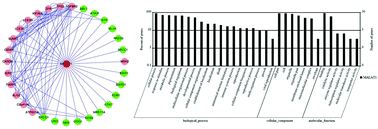LncRNA-MALAT1 as a novel biomarker of cadmium toxicity regulates cell proliferation and apoptosis
Abstract
Cadmium (Cd) and its compounds are well-known human carcinogens, but the mechanisms underlying the carcinogenesis are not well understood. This study aimed to investigate whether lncRNA-MALAT1 could serve as a novel biomarker of Cd toxicity in cells, animals and Cd-exposed workers, and regulate cell proliferation, apoptosis, migration and invasion. MALAT1 expression increased gradually in CdCl2 transformed 16HBE cells. The cell apoptosis, migration and invasion were significantly inhibited, and the mRNA and protein expression of FOXC2, STAT, BAX, EGFR, and TGF-β1 reduced, but BCL-2 increased (P < 0.05) after silencing MALAT1 by siRNA in CdCl2 treated 16HBE cells of 15th and 35th passages. Cadmium increased MALAT1 expression in the lung of Cd-exposed rats in a dose-dependent manner. A significant positive correlation was observed between blood MALAT1 expression and urinary/blood Cd concentrations, and there were significant correlations of MALAT1 expression with the expressions of target genes in the lung of Cd-exposed rats and the blood of Cd exposed workers. This study suggests that the expression of MALAT1 is upregulated and regulates the cell cycle progression, proliferation, apoptosis, migration and invasion in Cd toxicity. MALAT1 may serve as a novel valuable biomarker of cadmium exposure and cadmium toxicity.



 Please wait while we load your content...
Please wait while we load your content...